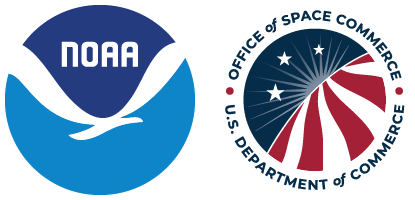NOAA Awards Two Commercial Microwave Sounder Pilot Contracts
On September 17, 2024, NOAA awarded contracts totaling $4,266,400 to purchase Microwave Sounder (MWS) data from two commercial satellite companies in support of new Commercial Weather Data Pilot (CWDP) studies.
The first contract for $2,266,400 is to Tomorrow.io of Boston, MA. The second contract for $2,000,000 is to Orbital Micro Systems of Boulder, CO.
In these studies, NOAA will assess the quality, characteristics, and impacts of available commercial MWS observations collected from Low Earth Orbit (LEO) platforms. The primary MWS data products are all-weather temperature and moisture profiles; ancillary derived products include precipitation and select land & hydrology products.
The period of performance for the two CWDP studies is 12 months, broken up by three phases: Preparation (3 months); Data Delivery (6 months); and Evaluation (3 months).
NOAA will use the pilot study data in two ways. First, to investigate the utility of MWS products developed by commercial vendors. Second, to address the potential benefits to numerical weather prediction (NWP) by adding additional commercial capabilities over the current U.S. Government LEO backbone.
Upon completion and evaluation, successful CWDP studies may lead to sustained commercial data purchases to support NOAA’s research and operational forecasting endeavors. The CWDP awards are pursuant to the Weather Research and Forecasting Innovation Act of 2017, as amended (Public Law 115-25) and the Consolidated Appropriations Act, 2024 (Public Law 118-42).
NOAA is pleased to take this next step in working with the commercial sector to obtain and analyze MWS products and data to meet NOAA’s critical weather forecasting mission for the Nation.
Background
Passive microwave (MW) measurements are important for NWP, climate modeling, and disaster preparedness. MW sounders provide foundational measurements of atmospheric vertical temperature and moisture profiles as well as land and hydrology measurements. MWS may also contribute to foundational MW imagery measurements, precipitation, and atmospheric vertical wind profiles.
The backbone of the current global observing system of the Earth’s atmosphere for global-scale NWP is the series of passive remote sensing MW radiometers. The importance of MW radiance observations has been demonstrated numerous times at several weather centers by impact experiments and by regular monitoring of the sensitivity of the short-term forecast error to different observation types.
Through the Commercial Data Program (CDP), NOAA intends to conduct a CWDP study to assess the quality and impact of available commercial MWS observations for the determination of MWS characteristics. NOAA will use the CWDP pilot study data to investigate the utility of integrating MWS products developed by commercial vendors into the backbone system. Concurrently, NOAA will address the potential benefits of adding multiple MWS orbits (vis-a-vis commercial MWS supplemental missions) over the current U.S. Government backbone.



